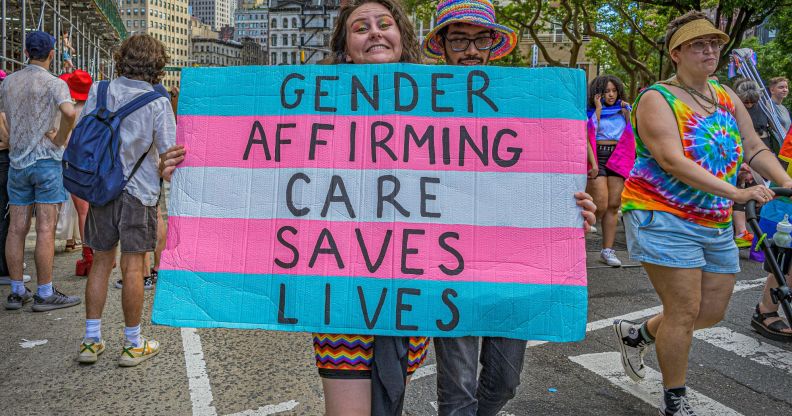Almost no one who has top surgery regrets it, study says

A medical study has likened gender-affirming care bans for minors to ‘abuse’. (Getty)
A study into the rate of regret for top surgery has confirmed that it improves life for the overwhelming majority.
Research published on Wednesday (9 August) involved 235 patients who had undergone a gender-affirming mastectomy – top surgery – over 30 years. It tracked their levels of satisfaction across the two-year period following their surgeries.
The study from the University of Michigan – published in the journal JAMA Surgery – found that the median satisfaction rate among those surveyed was five out of a five.
Regret was 0 out of 100, meaning not a single patient involved in the study regretted their choice to have the surgery. None of the respondents reported undergoing reversal procedures.
The research involved only a single medical centre, so for the findings to be “generalisable”, future research will need to involve people in a number of places, the study authors said.
They noted that a recent review of research suggested the regret rate for transfeminine and transmasculine surgeries was one per cent.
Invited commentary on the survey commended the research, with the findings said to “support other studies with shorter follow-up” and demonstrate the “stability of surgical results”.
“This study contradicts claims that regret following gender-affirming surgery may not manifest for many years and highlights the disproportionate criticism encountered in gender-affirming care compared with other surgical disciplines.”
Regret rates for gender-affirming surgeries are often overstated by right-wing, anti-LGBTQ+ groups in an attempt to justify restrictions on trans people’s care.
These restrictions often extend to trans youth, despite no medical organisation offering gender-affirming surgeries to under-16s, while under-18s are generally permitted to undergo them only under exceptionally rare circumstances.
According to the American Civil Liberties Union, an estimated 492 anti-LGBTQ+ bills have been proposed in the US so far this year, with 130 of them relating to trans healthcare – either banning surgeries for minors or adults, or prohibiting gender-affirming healthcare, including puberty blockers, altogether.
While some of these bills have been thrown out by federal courts, several are still going through state legislatures and some have passed into law.
How did this story make you feel?

